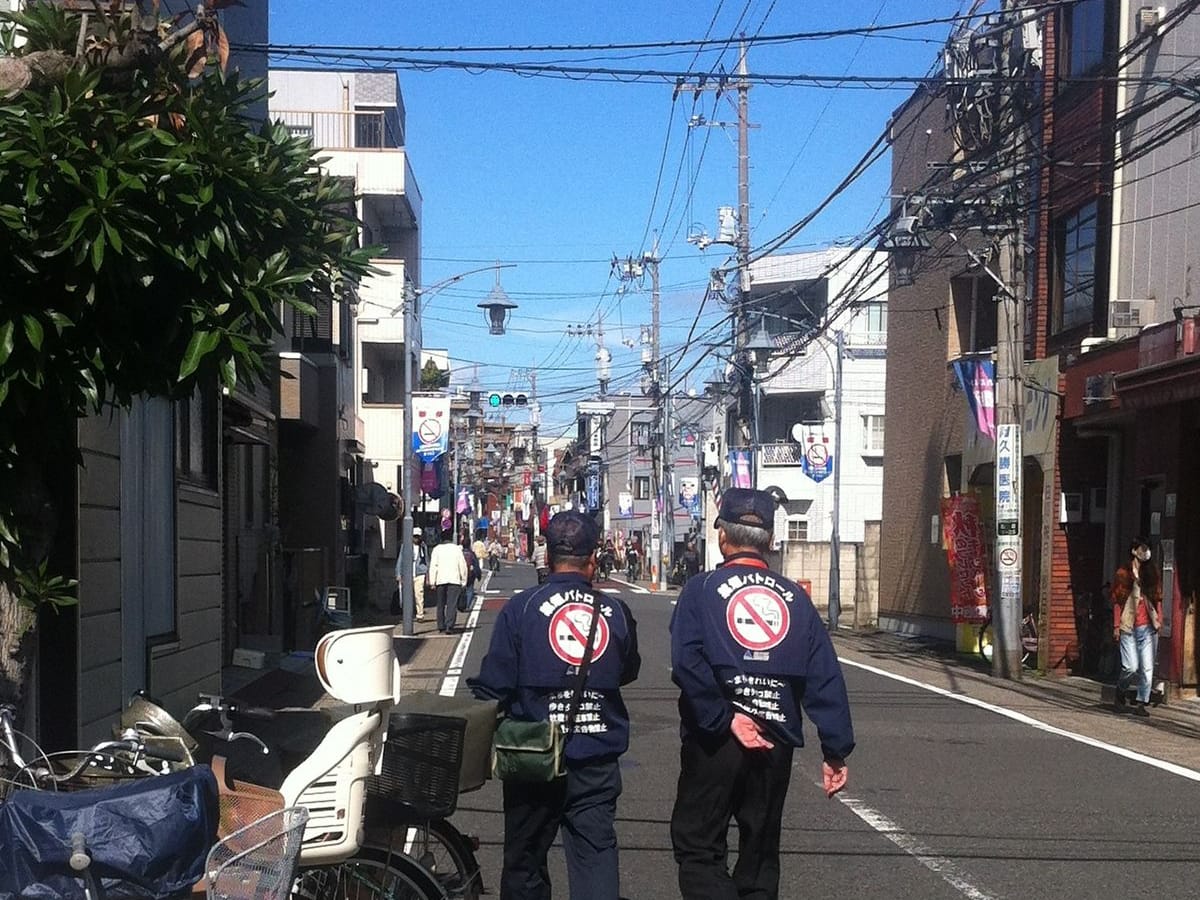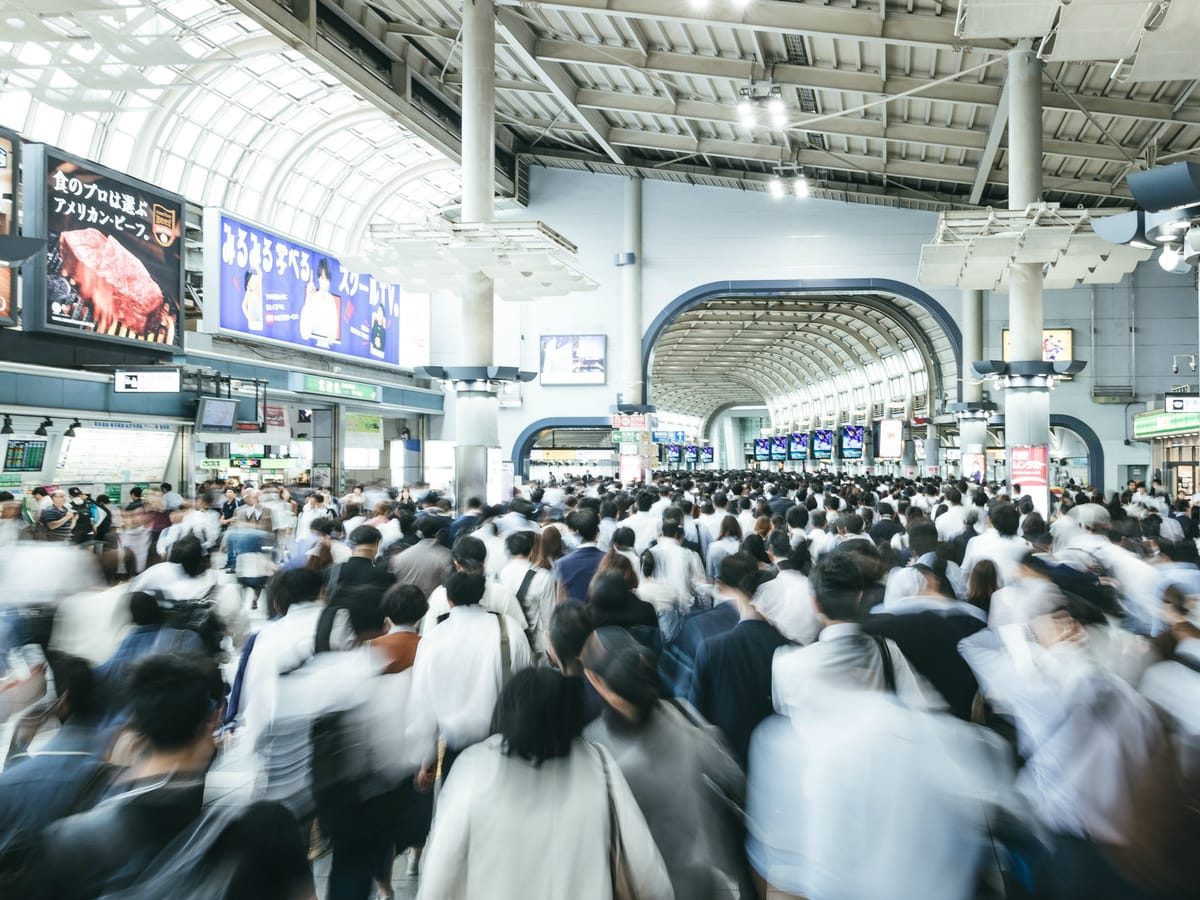
Source: Anti-smoking wardens on patrol in Tokyo. | nesnad, CC BY 3.0, via Wikimedia Commons
Tips for smokers in 21st century Japan
- Tags:
- anti-smoking / Manners / smokers / smoking / Tobacco
Related Article
-

Japanese Railway Uses Ukiyo-e Style Posters To Teach Train Etiquette
-

Japanese May Want To Say Sayonara to Stifling Sneezes, Report Reveals
-

Ordinances Banning ‘Smartphone Zombies’ Coming to Japan
-

Wedding etiquette in Japan: Things you should know when attending a Japanese wedding
-

Third of Service Industry Workers Banned from Wearing Masks Despite Coronavirus Outbreaks
-

No gaijin smash: some helpful tips on Japanese etiquette


It’s not easy being a smoker in Japan anymore. In the early '90s, when I first arrived, it was very much a smokers' paradise, and I could indulge my filthy habit wherever I liked: on planes, in the cinema, even while waiting to see the doctor. Sadly, since the Millennium, as local authorities have taken the West's anti-smoking campaign to heart, attitudes to smoking have changed dramatically and these days you can hardly smoke anywhere.
Even outdoors, smokers are only allowed to smoke in ‘smoking areas’, usually an area fenced-in by translucent plastic panels or dwarf conifers in pots. They are designed to keep smokers out of sight, presumably so that the general public doesn't have to see drug addicts pandering to their addiction.
A public smoking room in Tokyo. | amanderson2, CC BY 2.0, via Wikimedia Commons
Most smokers’ areas are outside train stations. While there are lots of stations in Tokyo, there aren’t as many as there are times in the day when I want a cigarette, so I often find myself caught short. Unfortunately, aside from smokers’ areas, there are few places where you’re allowed to smoke outdoors.
Sometimes, I’ve found a standing ashtray outside one of the city’s few remaining tobacconists, but I have often walked for ages looking for somewhere to have a smoke. Not finding one, and seeing no one around, I’ve ducked into a side street, lurked at the back of one of the city’s little parks, or ducked behind a bank of jidōhanbaiki 自動販売機 (vending machines) for a quick wheeze.
Seeing me, mothers shoot me a frightened look, grab their child's hand, and scurry away. I become a rule breaker. I am inconsiderate and selfish, a disruptive foreign presence, whose threat to the social order is directly proportionate to my disregard for what other people think of me.
I’m past caring, so I just smoke and do my best to withdraw into another time and place, where people have better things to do than admonish their neighbours for breaking petty rules. Scornful pride aside, I resent being made a pariah for something as unremarkable as smoking a cigarette. After all, smoking is not illegal.
In Japan, even beaches have designated areas for smokers. | hashi photo, CC BY 3.0, via Wikimedia Commons
So why is it prohibited to smoke in so many places in Japan? I’ve seen signs on the street warning of the dangers of smoking while walking—something about 'the end of a lit cigarette might burn someone'—but personally, the only time I’ve worried about being burned by a smoker is when I've been in an overcrowded 'smokers’ area.'
Other signs stress the importance of observing ‘smokers' manā’—the Japanese rendering of the English word ‘manners.’ I agree that it's not good form to expose other people to my second-hand smoke, but there's less danger of that happening in the open air.
And why the world’s most polite, highly regulated society should need to borrow our word for 'manners' is beyond me. I suspect it has something to do with following America's lead. These days, that means treating smokers like pariahs, but there was a time when smoking was practically on the curriculum in American schools, and that's when Japan picked up the habit.
Back in the early '90s, I remember seeing a cigarette machine, on the side of which was what purported to be a chatty conversation about Japan between two foreigners. It was written in English and went something like: “Hey, they really do like smoking here, don’t they?" "Oh sure, but everyone likes a good smoke.” At the time, I thought it strange to put a snippet of a conversation between ‘us’ about ‘them’ on the side of a vending machine, but its unquestioning approval of my favourite vice was comforting to see.
Yet there are interesting differences between their campaign and ours. In the West, the new rules governing smoking basically state that you can smoke outside but not in, the logic being that there is little danger from second-hand smoke, as long as you smoke outside.
There is also an assumption that, aside from educating me on the dangers of smoking and taxing my cigarettes, there’s not a lot the authorities can do to stop me smoking. They can nudge me towards giving up, but ultimately, it's my choice. It might be a stupid choice, but it’s my stupid choice.
But the Japanese authorities have rather less respect for the individual’s right to choose and rather more confidence in their own ability to discern the public good.
Fortunately, the rules governing smoking are not strictly policed, if only because, by and large, the authorities can rely on the public to do as they’re told. There are dishonourable exceptions, however. I saw one yesterday: an ojīsan (elderly man) slowly pedalling his bicycle down the shōtengai (market street) with a cigarette perched in the corner of his mouth. It was precisely this kind of casual defiance that made smoking look cool in the first place.
While smoking outdoors has become anathema in Japan, smoking indoors is still quite acceptable, albeit in a dwindling number of restaurants, pubs, and izakaya restaurants. As for cafes, they maintain differing rules according to their target market. Being inspired by West Coast clean living, Starbucks makes no such provision for tabagists, and neither does Tully’s, Cafe Veloce or Excelsior.
So when I want a cigarette and can’t find a suitably scruffy back alley, I go to a branch of Doutor, whose target audience is the middle-aged salarīman looking for somewhere to have a smoke. There I pay ¥220 for a burendo (blended coffee), pick up an ashtray, and make my way to the smokers' room.
When I first arrived in Japan, the smokers' room generally occupied about half of the premise’s floor space, but these days, it occupies about a sixth and is shrinking by the day. There is an air conditioning unit, but it can’t entirely remove the comforting smell of stale tobacco or the nicotine stains on the walls, which are a shade of sepia that has become a rare sight in the new century.
The electric door noiselessly glides to a close behind me, and I am back in the halcyon days of the 20th century, when permanent coughs, bad breath, and a healthy contempt for authority were par for the course, and even the government accepted that, sooner or later, we all have to die of something.